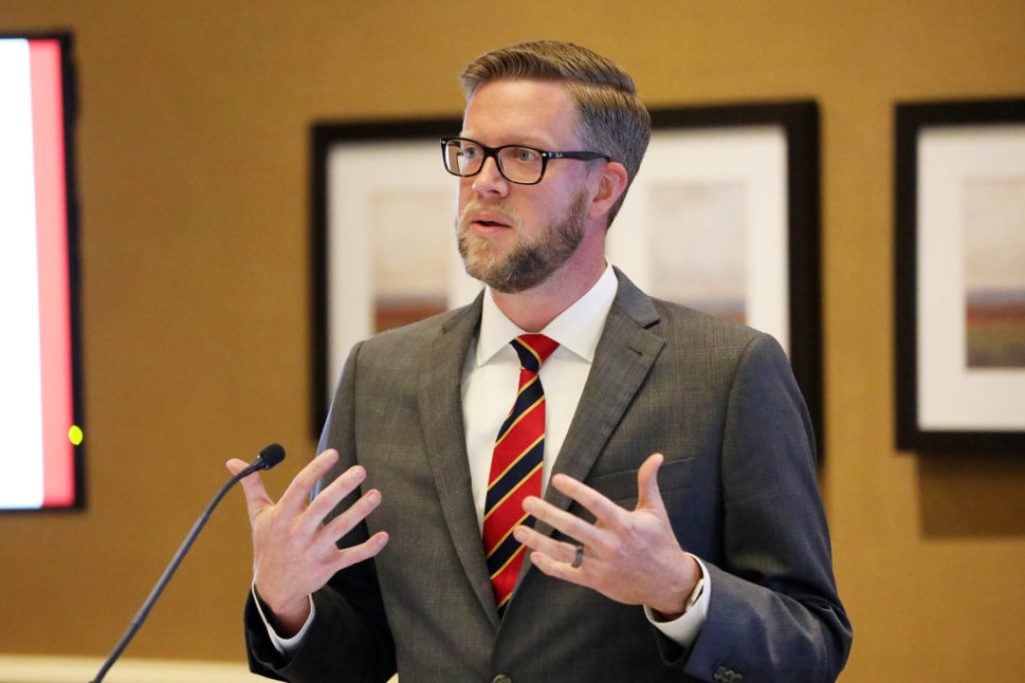The recent revelations of troubling policies and practices at Facebook demonstrate Christians should continue to seek to influence social media companies and to address related issues in a biblically sound manner, said a Southern Baptist technology ethicist.
Jason Thacker, chair of research in technology ethics at the Ethics & Religious Liberty Commission (ERLC), commented on reports based on tens of thousands of pages of internal documents leaked to news media by a former Facebook employee. The reports by multiple outlets indicated, among other disclosures, that Facebook’s policies promoted greater division in the United States and overseas and knowingly fostered a toxic environment for teenage girls on its subsidiary Instagram.
The new revelations “are deeply unsettling,” Thacker said in a written statement. “These internal reports and documents reveal the immense power and influence that Facebook, and by extension other social media platforms, have on our society.
“Christians who care about the health of our society can see the widespread effects these platforms are having. … Technology companies are at the center of our modern public discourse and, in that role, they have a tremendous responsibility.
“The dignity of our neighbors and overall civic health is at stake here, and these revelations should compel the church to more actively engage technology issues with a robust theological and ethical framework. Pastors and ministry leaders are on the front lines of dealing with the oftentimes subtle and deleterious ways technology is shaping us.”
Thacker noted the documents show Facebook “has actively sought to understand some of the problems with its platforms, which is commendable even if incomplete. In fact, we must continue urging Facebook and other technology companies to commit to sustained research into how their platforms shape the digital public square.”
Frances Haugen, a Facebook product manager for nearly two years, copied internal documents and released them in redacted form to reporters, beginning with the Wall Street Journal. The whistleblower testified on Facebook’s practices before a U.S. Senate subcommittee in early October, charging the company with hiding important information from the public and the government.
The Journal first began reporting in September on Haugen’s release of the documents in a series it referred to as The Facebook Files. In October, Haugen expanded their release to journalists with at least 17 news media outlets, including The New York Times, The Washington Post and The Associated Press, according to The Times. The news outlets’ widespread publication of articles – now known as The Facebook Papers – started Oct. 25.
Among the findings from the documents that have been reported:
- Company leadership failed to take action when a 2018 revision to Facebook’s news feed designed to advance closer and more harmonious relationships with family and friends actually often had the effect of spreading anger and misinformation, according to CNBC.
- Facebook’s automated systems removed only about 2% of hate speech as of 2019 and less than 1% of material seeking to trigger violence as of 2021, CNBC reported.
- Failure to regulate its platform overseas has resulted in hate speech or violence in such countries as Afghanistan, Ethiopia, Myanmar and Sri Lanka, according to various news reports.
- The company has struggled to curtail the use of its platforms in human trafficking, specifically domestic servitude, and, as a result, Apple threatened in 2019 to bar Facebook and Instagram from accessing its App Store, multiple outlets reported.
- A Facebook study reported by National Public Radio showed 13.5% of British teenage girls said thoughts of suicide increased after joining Instagram, which is owned by Facebook.
CNBC reported Mark Zuckerberg, Facebook’s chief executive officer, said on Facebook of Haugen’s charges:“At the heart of these accusations is this idea that we prioritize profit over safety and well-being. That’s just not true.”
In a report to ERLC trustees in September, Thacker unveiled the Digital Public Square, a research project he is leading to help churches wisely address technology issues.
The resources to be provided during the next 18 months consist of four major elements, he told the trustees:
1. A “state of digital governance report” that will present a portrait of current and future technological issues;
2. an evangelical Christian statement of principles on “content moderation and digital governance;”
3. a church resource kit scheduled to be released in the summer of 2022; and
4. two books to be published next year – Following Jesus in the Digital Age and The Digital Public Square: Ethics and Religion in a Technological Society. Thacker is writing the former for Broadman & Holman (B&H) Publishing and editing the latter for B&H Academic.
While the Digital Public Square is funded by the Cooperative Program, the Southern Baptist Convention’s unified giving plan, Facebook Technologies LLC also provided a research grant after the effort was under way. Thacker provided assurances to the trustees and on the project’s website that Facebook has no direct or indirect oversight regarding the project.
(EDITOR’S NOTE – Tom Strode is Washington bureau chief for Baptist Press.)


